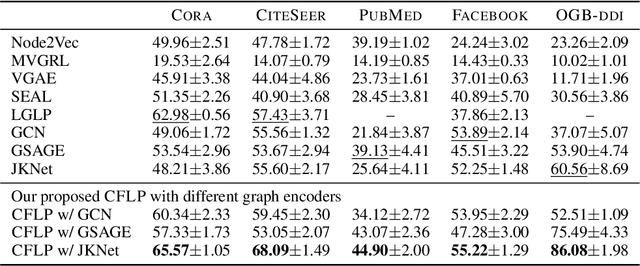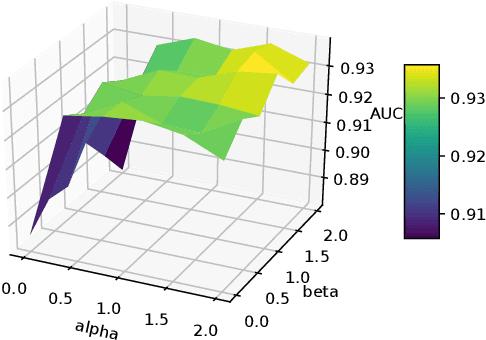Counterfactual Graph Learning for Link Prediction
Paper and Code
Jun 03, 2021



Learning to predict missing links is important for many graph-based applications. Existing methods were designed to learn the observed association between two sets of variables: (1) the observed graph structure and (2) the existence of link between a pair of nodes. However, the causal relationship between these variables was ignored and we visit the possibility of learning it by simply asking a counterfactual question: "would the link exist or not if the observed graph structure became different?" To answer this question by causal inference, we consider the information of the node pair as context, global graph structural properties as treatment, and link existence as outcome. In this work, we propose a novel link prediction method that enhances graph learning by the counterfactual inference. It creates counterfactual links from the observed ones, and our method learns representations from both of them. Experiments on a number of benchmark datasets show that our proposed method achieves the state-of-the-art performance on link prediction.
 Add to Chrome
Add to Chrome Add to Firefox
Add to Firefox Add to Edge
Add to Edge